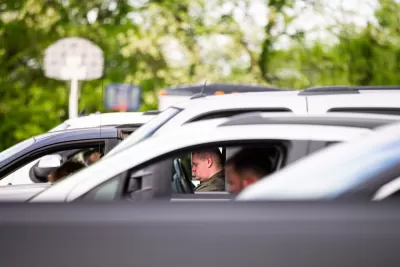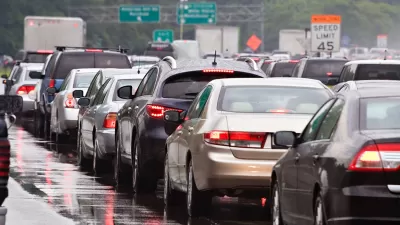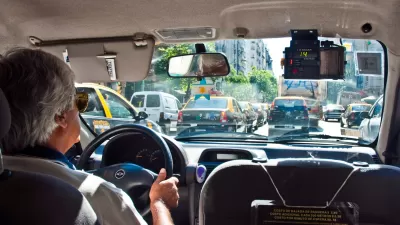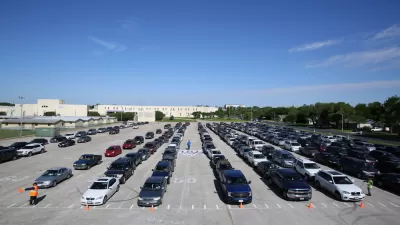A massive survey on the sentiments of Americans during the COVID-19 pandemic reports that many people are less likely to ride public transit, or rely on Uber and Lyft, in the future.

New survey data from IBM’s Institute for Business Value "gives a glimpse into how people will utilize transportation, both public and private, once the world reopens," according to an article by Colin Beresford. IBM surveyed 14,000 people and discovered that many respondents are reevaluating their transportation preferences.
Public transportation, ride-sharing services, and personal transportation are all things that people reported that they were going to approach differently. IBM surveyed 14,000 people (for the automotive portion of the survey) in April, and more than 17 percent said that they intend to use their personal vehicle more often due to COVID-19.
The numbers also include bad news for shared modes of transportation:
Of those who regularly used public transit such as buses, subways, or trains before the pandemic, 20 percent said that they no longer will do so, and another 28 percent said they will use it less frequently. When it comes to ride sharing, a majority of the respondents said they would use the services less often or stop using them completely.
One factor noted in the survey results that might control the potential for gridlock and air pollution to overwhelm the country as people use cars more than ever to socially isolate is the economic uncertainty that means many people who want to buy cars or drive their current cars more often simply won't be able to afford the option.
FULL STORY: Transportation Isn’t Going to Be the Same after Pandemic: Study

Planetizen Federal Action Tracker
A weekly monitor of how Trump’s orders and actions are impacting planners and planning in America.

San Francisco's School District Spent $105M To Build Affordable Housing for Teachers — And That's Just the Beginning
SFUSD joins a growing list of school districts using their land holdings to address housing affordability challenges faced by their own employees.

Can We Please Give Communities the Design They Deserve?
Often an afterthought, graphic design impacts everything from how we navigate a city to how we feel about it. One designer argues: the people deserve better.

The EV “Charging Divide” Plaguing Rural America
With “the deck stacked” against rural areas, will the great electric American road trip ever be a reality?

Judge Halts Brooklyn Bike Lane Removal
Lawyers must prove the city was not acting “arbitrarily, capriciously, and illegally” in ordering the hasty removal.

Engineers Gave America's Roads an Almost Failing Grade — Why Aren't We Fixing Them?
With over a trillion dollars spent on roads that are still falling apart, advocates propose a new “fix it first” framework.
Urban Design for Planners 1: Software Tools
This six-course series explores essential urban design concepts using open source software and equips planners with the tools they need to participate fully in the urban design process.
Planning for Universal Design
Learn the tools for implementing Universal Design in planning regulations.
Borough of Carlisle
Smith Gee Studio
City of Camden Redevelopment Agency
City of Astoria
Transportation Research & Education Center (TREC) at Portland State University
City of Camden Redevelopment Agency
Municipality of Princeton (NJ)





























